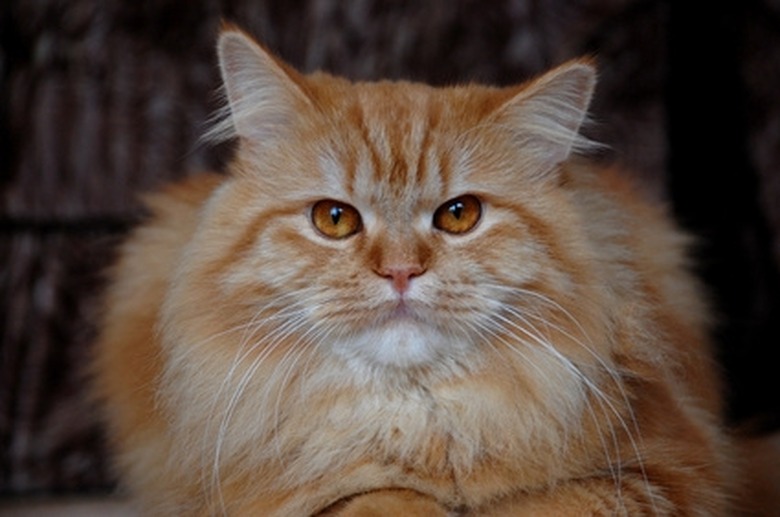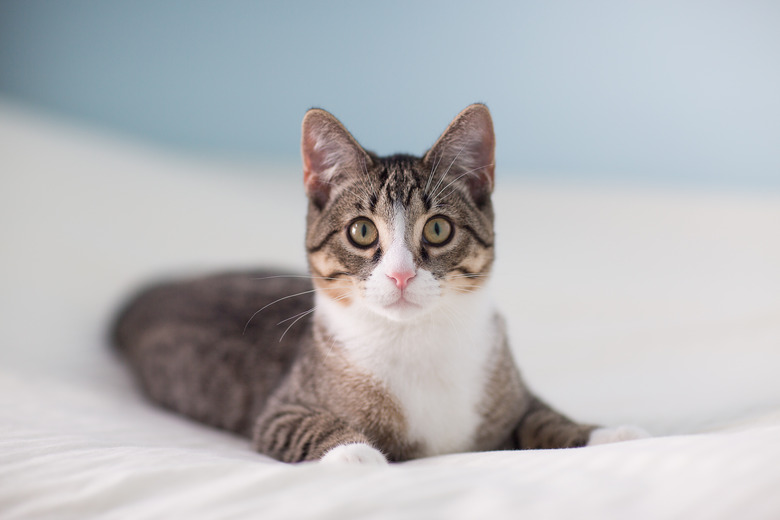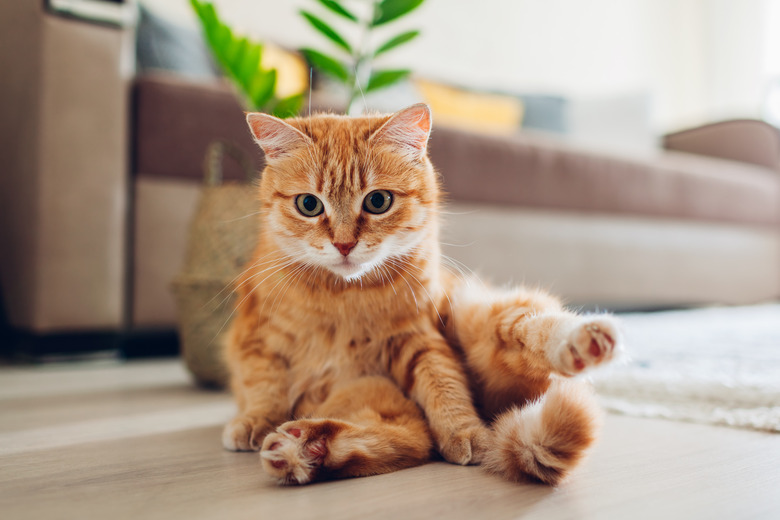How To Treat A Sneezing Cat With A Home Remedy
Is your cat sneezing so frequently that you keep a box of tissues nearby? You could have a sick cat, but keep in mind that your cat may be sneezing for any number of reasons. The culprit could include sinusitis, a cold, or an allergy.
While sinusitis and colds usually clear up on their own, an allergy needs to be identified and resolved. Your feline could be allergic to a variety of things, including cleaning products, grooming products, dust, or even outdoor pollen. Your veterinarian will diagnose and treat the cause of your cat's sneezing, but some home remedies may help your cat feel better too.
Causes of sneezing in cats
Causes of sneezing in cats
There is more than one common cause of sneezing, some as benign as an itch and others serious enough to need medical treatment. For example, your feline friend could sneeze from:
- Breathing in dust or a particle from the air
- A tickle in their nose
- Irritating chemicals or other smells
- Getting grass or other foreign objects in their nose
- Allergies to something in their environment
- Feline upper respiratory infections and other viral infections, such as feline herpesvirus or feline calicivirus
- Rhinitis or sinusitis
- Less commonly, bacterial infections, such as chlamydia
Look for any other symptoms in your cat's eyes and nose that may accompany the sneezing, like a runny nose, watery eyes, difficulty breathing, or loss of appetite. If the cat has a nasal discharge, note whether it is clear or cloudy and whether the cat's nose is crusty from the discharge hardening.
While your cat may need medication for an infection, mild cases usually resolve quickly as long as your cat has been given the recommended vaccines and has a healthy immune system. Be sure the cat continues to eat and drink normally while recovering and contact your veterinarian for severe cases that do not resolve quickly, as there could be underlying causes for the sneezing.
Feline allergy relief
Feline allergy relief
Pay attention to where your cat is when the sneezing most often occurs. Look around to see what is in the immediate environment that could cause allergic reactions. If your cat is suffering from an allergy, these questions can help identify the allergen. Some of the things to which cats can be allergic include:
- Flea shampoo, powders, and collars
- Chemicals in cleaners, paint, and more
- Dust
- Pollen and grasses
- Mold and mildew
Once the allergen is identified, the simple solution is to remove it from your cat's environment. Clean your house thoroughly and dust carefully, trying not to stir up the dust into the air. Wash the cat's bedding weekly and dry it on high heat to get rid of any dust mites. You'll also want to change the litter. Your cat could be allergic to the litter if they're creating a dust cloud every time they go to the bathroom. Purchase a dust-free litter or one with crystals that reduces dust accumulation or with fine granules that clump.
Cat sneezing home remedy
Cat sneezing home remedy
Being in an environment of constant dry air can cause sneezing and stuffiness in cats as well as humans. Moisture in the air may help alleviate the symptoms. Use a vaporizer or humidifier to put moisture in the air or use a nebulizer on your cat.
If you don't have a vaporizer or nebulizer, you can simply take a hot shower and shut your cat in the bathroom with you while the room gets nice and steamy. Allow your cat to sit in the steamy bathroom for up to 15 minutes. The steam might help clear your cat's sinuses and reduce the constant sneezing.
Cat sneezing medicine
Cat sneezing medicine
Purchase a non-medicated simple saline nasal solution for humans, typically available in your local drugstore. Apply saline nose drops to help thin mucus in the nasal passages and relieve irritation that may cause sneezing. Place one to two drops in each of your cat's nostrils.
The saline solution will not only help sooth your cat's irritated nose but it will help the cat sneeze out any mucous and bacteria that might be in their airway. You can also place the solution on a cotton swab and use it to clean away any crustiness from the nose and the eyes.
Home remedies for cat colds
Home remedies for cat colds
Although home remedies for cat colds, like using steam or saline nasal drops, may help your sneezing cat feel better, your best bet is to have your cat examined by a veterinarian first so you know whether you are dealing with a cold, allergy, upper respiratory infection, or something else. While a simple cat cold may resolve itself, it can sometimes lead to a secondary bacterial infection that will require antibiotics.
When a stuffy nose causes cats to lose the ability to smell their food, they may stop eating. Tempt their taste buds with more potent-smelling food, like tuna or mackerel, or heat some wet cat food in the microwave for a few seconds to enhance its aroma. If your cat still won't eat, your veterinarian may have to give intravenous fluids during the recovery period.
The bottom line
The bottom line
Cats sneeze for a variety of reasons, but most come down to colds, viral or bacterial infections, or allergies. It's important to seek your veterinarian's advice to determine what is causing your cat's sneezing because medication may be needed to clear it up. Once you know the cause, it is fine to try simple home remedies, like saline spray, vaporizers, and steamy showers, to help keep your cat comfortable. Most importantly, though, be sure your cat continues to eat and drink and seek veterinary care if that becomes a problem.


